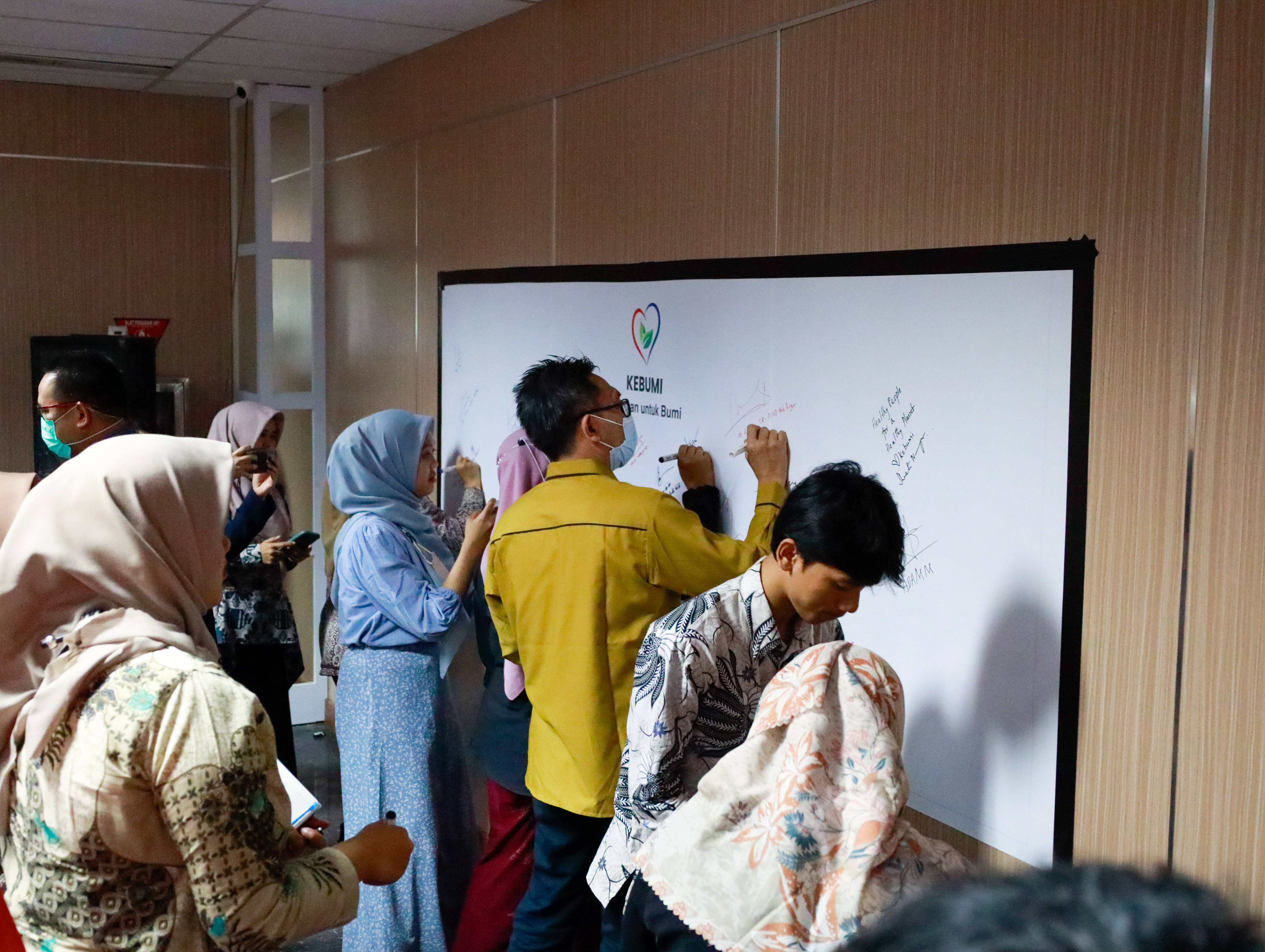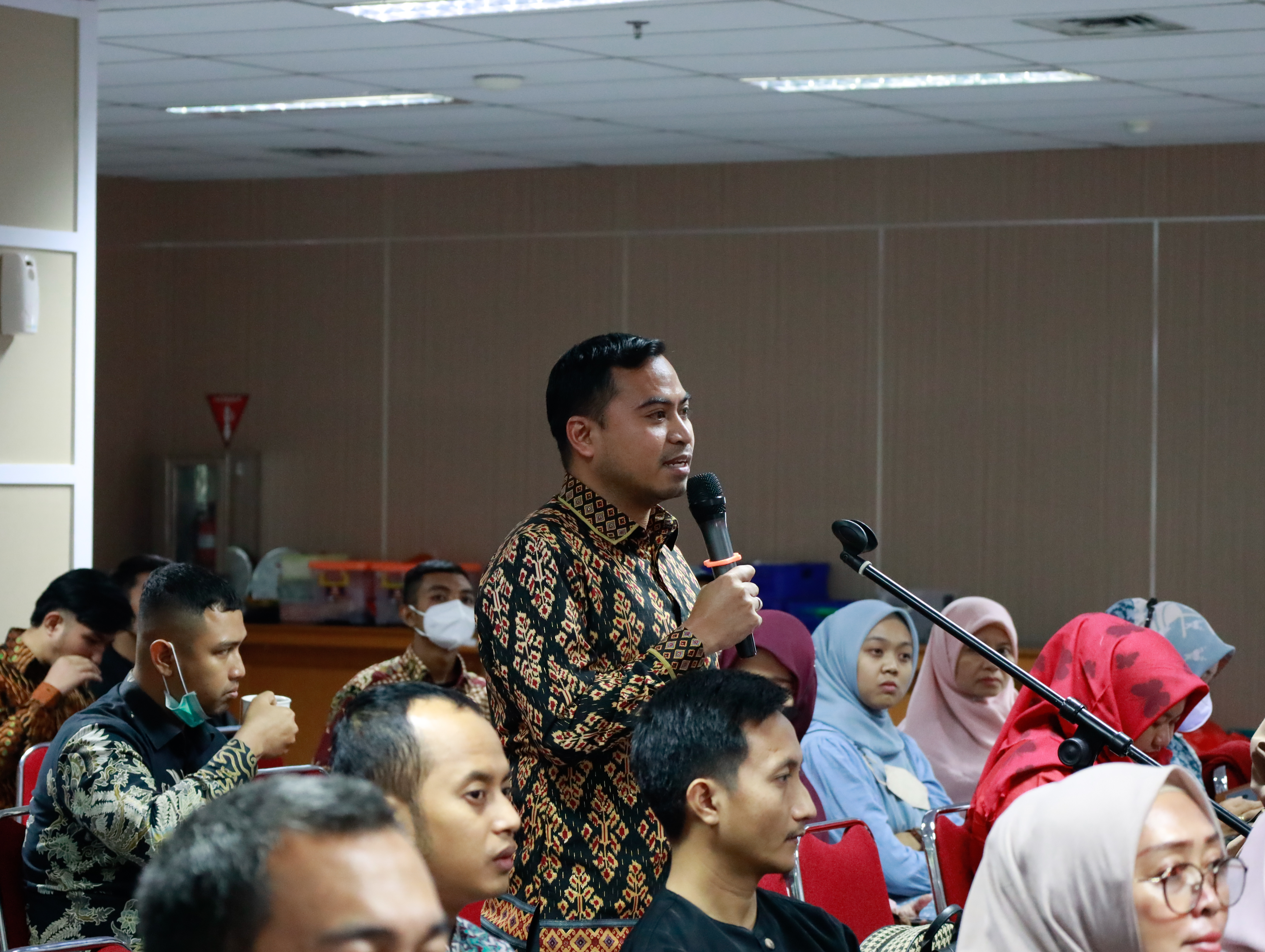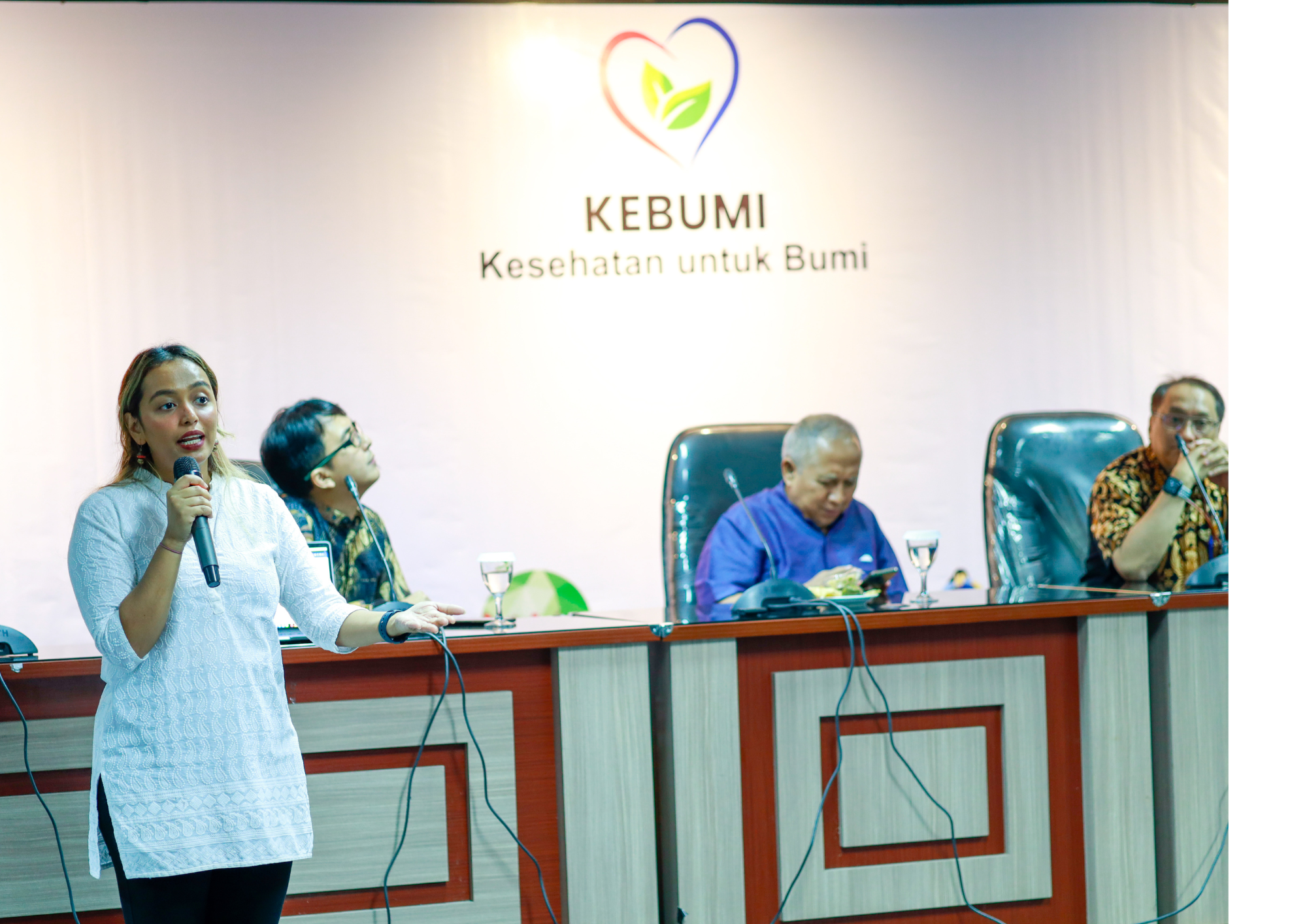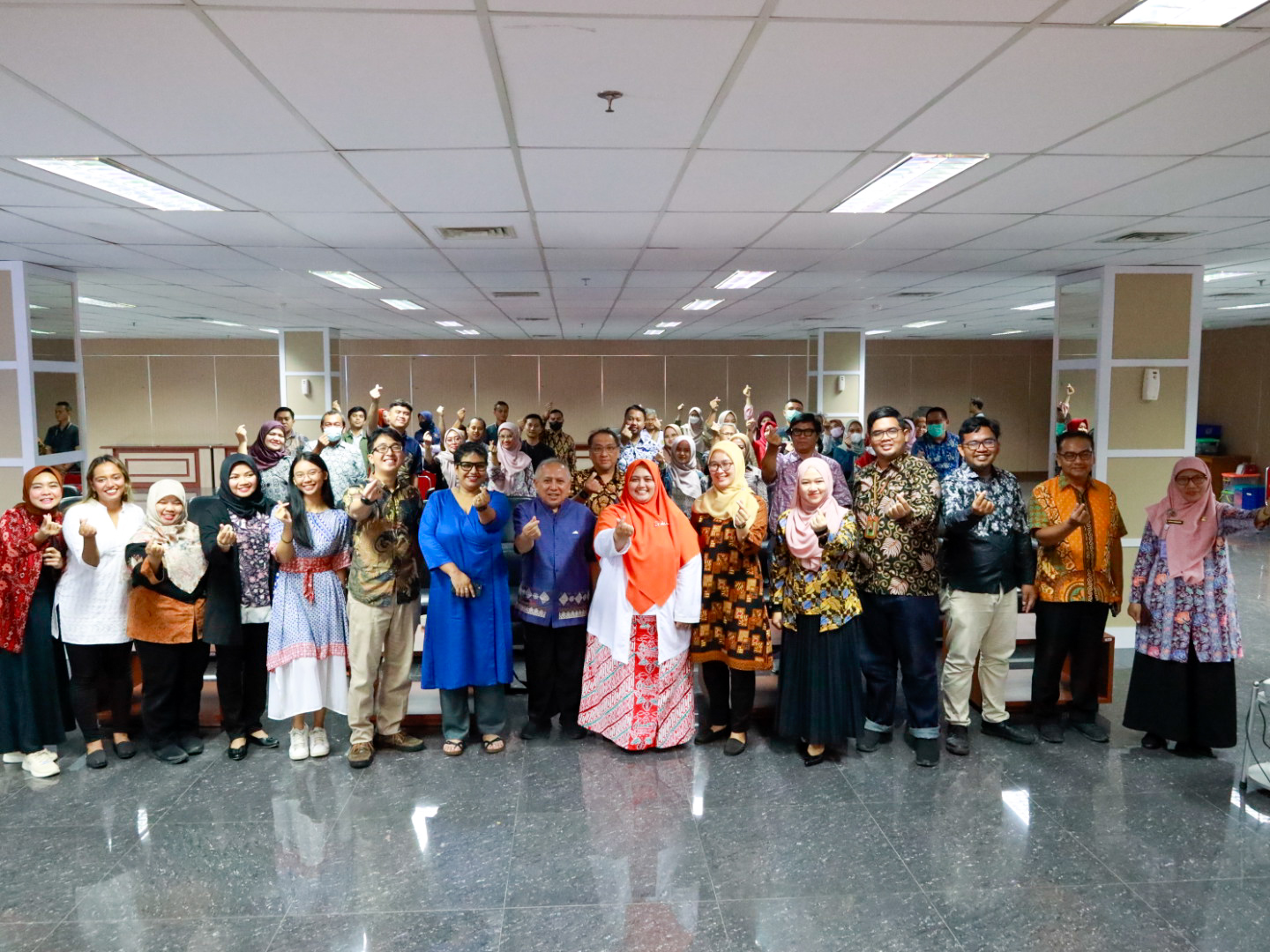Health professionals unite for greener, healthier Indonesia


In an era where the conversations surrounding climate change and its profound implications on health are ever-present, it becomes increasingly critical to assess our progress and understanding. But what have we accomplished thus far? Do we genuinely understand the weight of climate change's impact on our planet and human health? Why is it essential to collectively and swiftly address this issue?
Climate change impacts the environment as seen in extreme weather events like stronger typhoons, floods, and wildfires. Evidently, human influence has been found to be the principal driver of the increased greenhouse gas concentrations which is observed in the burning of fossil fuels, deforestation, and livestock farming, to name a few. Moreover, in March 2023, the Intergovernmental Panel on Climate Change (IPCC) revealed that emissions should be reduced to almost half by 2030 to limit global warming to 1.5 degrees Celsius. Sad news, July 2023 was declared the hottest month ever, surpassing this critical threshold.
Climate change doesn't only affect the environment, it also impacts human health. Extreme heat can lead to heat-related illnesses and fatalities; poor air quality further heightens risks of respiratory and cardiovascular diseases, even death; among other things.
Zooming into the region, in 2022, Asia-Pacific alone produced a staggering 17.96 billion metric tons of carbon dioxide emissions, surpassing all other regions combined for that year. For instance, Indonesia, a climate-vulnerable country, is already experiencing the health impacts of climate change, including sea-level rise, extreme heat, and increased air pollution. These environmental stressors lead to various health issues, such as malnutrition, respiratory problems, displacement, and increased vulnerability to sexual abuse. The reliance on coal power plants, industrial activities, biomass burning, and fossil fuels worsens air pollution, especially in urban areas, further straining public health.
For instance, Indonesia’s capital Jakarta is the world’s most polluted city, according to a recent study. The PM2.5 concentration in the city is currently 13.3 times the WHO’s annual air quality guideline value, which is alarmingly unhealthy not only to the environment but also to the people.
Jakarta is also recognized as the world’s most rapidly sinking city, chronically suffering from flooding. In 2017, the New York Times reported that about 40 percent of Jakarta lies below sea level. In fact, two years later in 2019, the Indonesian government proposed to relocate the capital to a place in Borneo which is now called Nusantara.
Addressing these overwhelming issues of climate change and its impacts on the environment, human health, and the economy in the Southeast Asian country requires a collective and urgent climate action from all sectors of Indonesian society, including the healthcare industry.
Thus, on July 27, 2023, KEBUMI - Kesehatan untuk Bumi, a program initiated by the Indonesian Health Promoting Hospitals Network (IHPH-Net) with the support of Health Care Without Harm Southeast Asia (HCWH-SEA), was launched at Gedung Dewan Perwakilan Rakyat Daerah (DPRD) Kota Bogor (Bogor Regional People's Representative Council). The KEBUMI project aims to empower health professionals in the country to effectively advocate and champion issues of climate justice, health equity, resilience, and healthy recovery in Indonesia. During the launch, distinguished speakers, policymakers, and practitioners in the field of climate and health in the region gathered for a series of talks, discussions, and exchanges on significant topics related to the project’s goals.
 Founder and former national coordinator of IHPH-Net, Dr. Suherman, MKM, emphasized the importance of health professionals’ role in climate action, stating, “We hold a profound responsibility to champion both planetary and human well-being. Over the course of 11 years, while spearheading the IHPH-Net, we recognize that hospitals contribute to carbon emissions fueling the climate crisis and have implemented innovative solutions within our facilities to enhance climate resilience. Now, as we stand at this critical juncture, we recognize the imperative to extend these solutions beyond hospital walls and into the very communities we are committed to protecting. With KEBUMI, we embrace this dual role, integrating health leadership in climate action, fostering a resilient future where both humanity and our planet thrive harmoniously.”
Founder and former national coordinator of IHPH-Net, Dr. Suherman, MKM, emphasized the importance of health professionals’ role in climate action, stating, “We hold a profound responsibility to champion both planetary and human well-being. Over the course of 11 years, while spearheading the IHPH-Net, we recognize that hospitals contribute to carbon emissions fueling the climate crisis and have implemented innovative solutions within our facilities to enhance climate resilience. Now, as we stand at this critical juncture, we recognize the imperative to extend these solutions beyond hospital walls and into the very communities we are committed to protecting. With KEBUMI, we embrace this dual role, integrating health leadership in climate action, fostering a resilient future where both humanity and our planet thrive harmoniously.”
 Echoing these sentiments, Dr. Raynaldi Prabowo as the project lead for KEBUMI conveyed, "As health professionals, we are at the forefront of a defining moment in history. The accelerating climate crisis demands that we not only lead in caring for individuals but also in safeguarding our shared planet. By driving climate and health leadership in decision-making, we forge a path towards a sustainable future. Embracing community partnerships, we unite our strengths to protect the environment, nurturing a healthier world for generations to come. Together, we hope through KEBUMI we will be able to inspire change and heal both people and the planet."
Echoing these sentiments, Dr. Raynaldi Prabowo as the project lead for KEBUMI conveyed, "As health professionals, we are at the forefront of a defining moment in history. The accelerating climate crisis demands that we not only lead in caring for individuals but also in safeguarding our shared planet. By driving climate and health leadership in decision-making, we forge a path towards a sustainable future. Embracing community partnerships, we unite our strengths to protect the environment, nurturing a healthier world for generations to come. Together, we hope through KEBUMI we will be able to inspire change and heal both people and the planet."
 HCWH-SEA Regional Climate Manager, Jit Sohal, highlighted the crucial role of the KEBUMI launch in showcasing health care leadership in climate action, stating, "In the face of climate change, health professionals must lead the charge for a just, resilient, and healthier world. KEBUMI embodies this spirit of collective action and will inspire us to create a positive impact on both people and the planet."
HCWH-SEA Regional Climate Manager, Jit Sohal, highlighted the crucial role of the KEBUMI launch in showcasing health care leadership in climate action, stating, "In the face of climate change, health professionals must lead the charge for a just, resilient, and healthier world. KEBUMI embodies this spirit of collective action and will inspire us to create a positive impact on both people and the planet."
In response to the pressing climate change issues facing the country and the region, the KEBUMI initiative seeks to integrate health professionals into the climate discourse. By unifying health professionals, medical associations, academic institutions, environmental organizations, policymakers, and global leaders, the project advocates for climate action and sustainability, fostering a healthier and more equitable future.
Committed to safeguarding both human well-being and the environment, KEBUMI stands poised to usher in a new era of resilience and sustainable progress for Indonesia and beyond.

If you reached this point, congratulations for taking the time to read this article. What will you do next to help Indonesia solve the climate and health issues? If you are interested to know more or to get involved in the KEBUMI program, contact them at adm.kebumi@gmail.com.
For more relevant topics, updates, and events, please visit our website or follow us on Facebook, Instagram, X (formerly Twitter), and LinkedIn.
